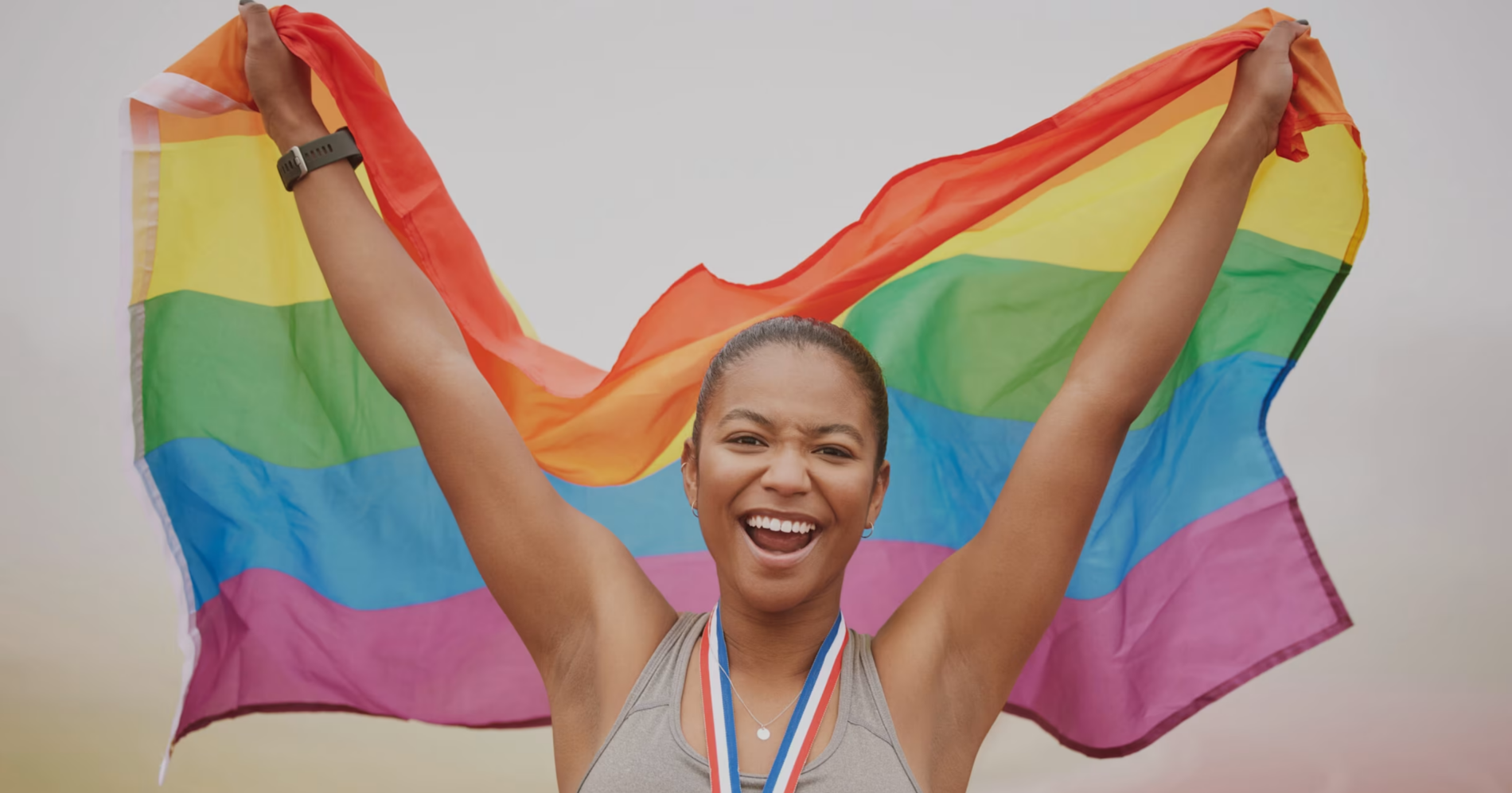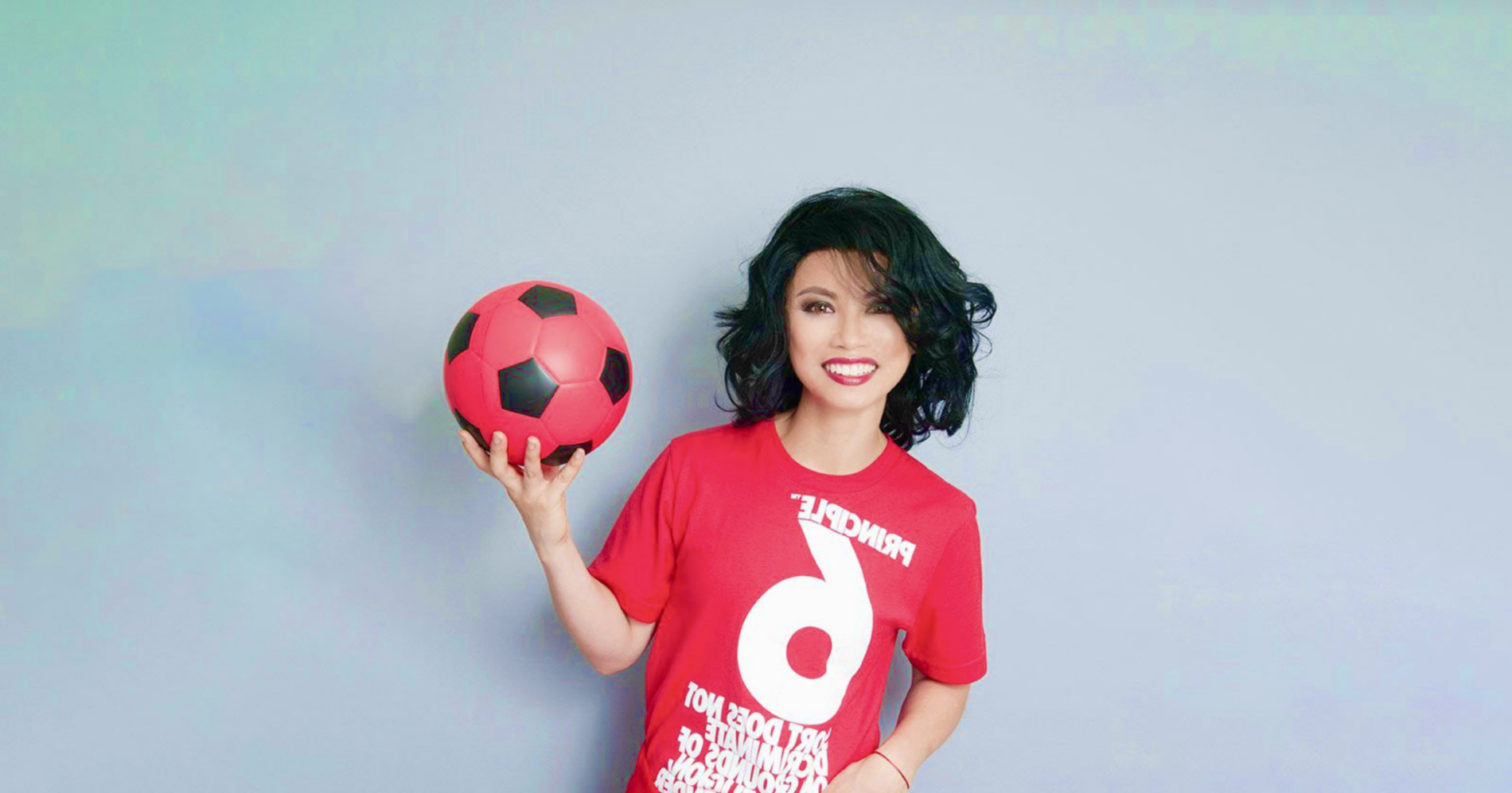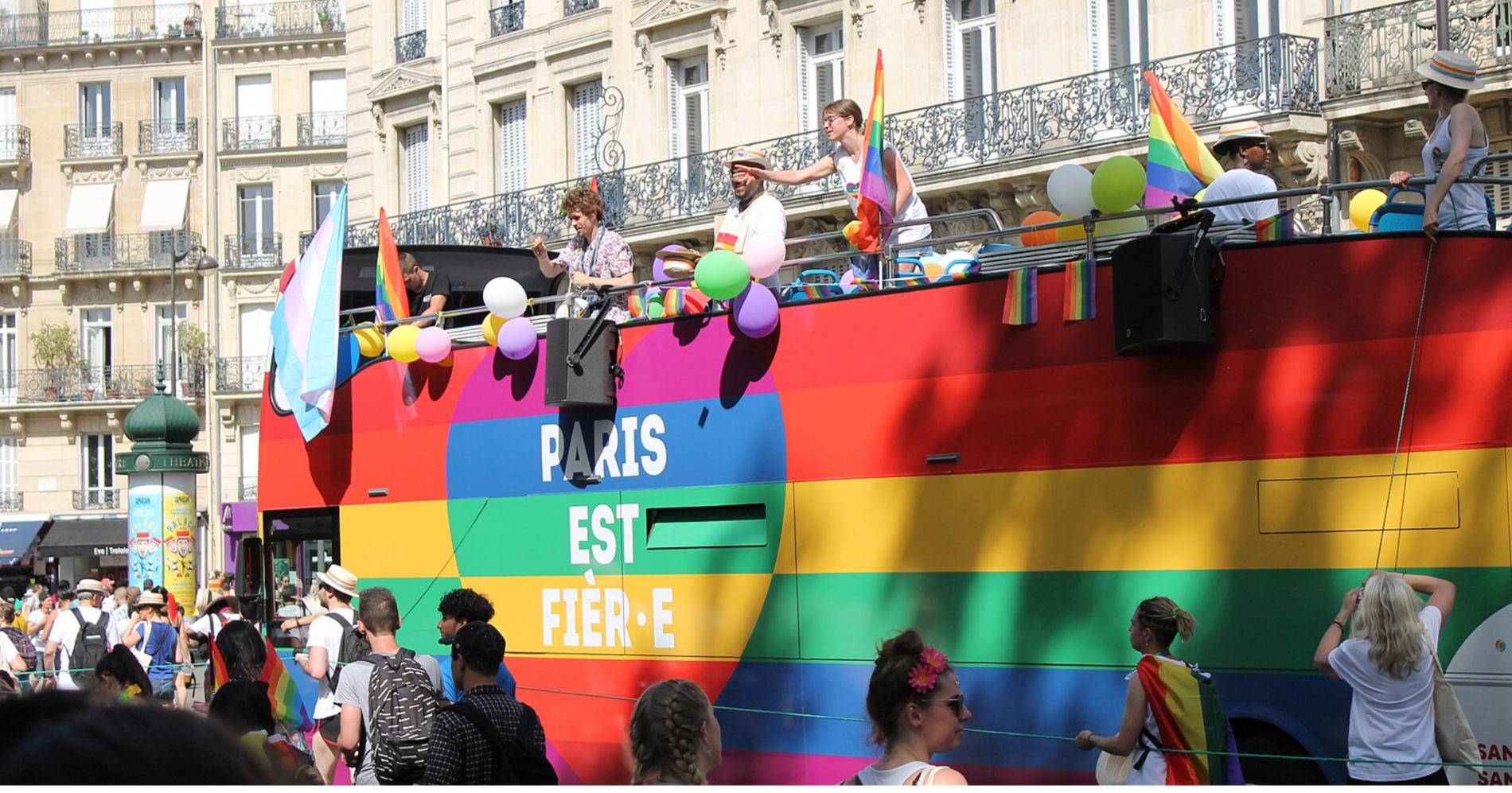Checking in with… Amazin LêThi
The only Asian LGBTQI athlete in the world to simultaneously hold multiple sports ambassador roles and engage in governmental work tells us about her work with Pride House at the Paris Olympics and how sport can be a platform for equality.
What inspired you to become an advocate for the LGBTQI community in sports?
My journey of championing equality through sport began with not seeing myself represented. I’ve participated in sport for as long as I can remember but when I stepped out into the field, I was one of one: I was the only Asian kid and the only LGBTQI athlete. I suffered a tremendous amount of discrimination and I found team sports to be a very hostile environment. When I began competing in bodybuilding as a teenager, I entered a really sexist sports world of very stiff gender norms about what men and women should look like. But bodybuilding also gave me the sense of confidence and self-worth to become the person that I am today.
Who is your inspiration?
Arnold Schwarzenegger. He was the first person I read about who was someone very different and used the platform of sports not only to champion different messages but also to celebrate himself. In that moment I saw myself, and a path through sport.

What led you to become an ambassador, particularly for Pride House?
I will be the only Asian LGBTQI athlete at the Paris 2024 Olympics, which is the largest platform for sports in the world. If I weren’t an ambassador, we would not have this representation and we would not be able to talk about the challenges that minorities still face in terms of the difficult journey of becoming a professional athlete, making it to the Olympics and being out at the Olympics. Many athletes from the Asian community experience anti-LGBTQI laws in their home countries. Seeing an out Asian athlete at Pride House might be the first time someone hears a story that marries with who they are and allows them to embrace their sexuality in the moment they are competing at the Olympics.
How can sport change the narrative around issues of DEAI?
Sport is a language that everyone understands; it brings people together. It’s not just about equality for LGBTQI people, it’s also about gender equality and it’s about disability rights. Identity is another right. Everyone should be able to show up as themselves. If athletes are having to hide so much of who they are, then that will have a negative impact on their mental health and impact their performance. I understand the work that I do with Pride House is not going to change the world overnight. But I hope it allows people to meet me halfway with a sense of compassion and understanding when I share the difficulty of my own story.

What are the biggest challenges faced by LGBTQI athletes?
LGBTQI athletes might lose sponsorship through coming out. In addition, if they come from a country with anti-LGBTQI laws, then there’s the fear of prosecution or threats to their family. So much is at stake for these athletes that even the thought of walking into Pride House might be scary. But if they are at the Olympics and they see a rainbow flag or they hear my story, it might give them a sense of hope – in the same way that I feel good about myself knowing there are other athletes who look like me, who understand my journey and are fighting for my rights.
How can events like the Paris Olympics create a lasting legacy of DEAI in sport?
France is a very open country where being LGBTQI is celebrated. One legacy is that kids who play sport at a grassroots level feel like they too could one day go to the Olympics and compete as part of the French team as an out athlete. But another legacy that we need to leave behind is that, moving forward, every country that bids for the Olympics must be held accountable for its LGBTQI laws. Organisations are important too; major sporting events can’t go ahead without sponsors who play a huge part in shifting the needle when it comes to LGBTQI rights.

How can sporting organisations balance fairness with inclusion when it comes to trans athletes?
Sporting organisations can balance fairness with inclusion by maintaining mixed gender sports and ensuring policies that do not single out trans athletes unfairly. There are already around 20 mixed gender sports at the Olympics; for the first time, two biological men will be allowed to participate on a synchronised swimming team. So if we were really talking about men not participating in women’s sport, then we would be talking about banning mixed gender sports. Instead, this is a direct attack on trans women in sports. The problem with this direct attack is that women have been policed in sport since time began. Asian and black women, for instance, have always been persecuted in sports because of what the ideal of a woman should look like. Policing or banning any group of women, including trans women, hurts all women because the core message of sport is that it is welcoming to everyone.
How have you seen the landscape change for DEAI in sports over the past decade?
I have seen many more out athletes, although there are more out white athletes than black and Asian ones. We now have LGBTQI organisations such as Athlete Ally, which I am an ambassador for, so athletes know there is a voice much larger than their own. But I think where the other shift has occurred is that the sports community is willing to have conversations around diversity, equality and inclusion in many more countries. We’re thinking more broadly, too. In the past we were focused on the sport and the athlete but now we’re thinking about the travel aspect too.

What advice would you give to other LGBTQI travellers?
It is so important to know the local laws. If you are traveling to a country that has anti-LGBTQI laws, you need to educate yourself. In some countries you cannot be in the same hotel with your partner unless you are married and you may have to limit public affection to absolutely zero. Create a safety net. Find out if there any LGBTQI organisations on the ground and locate your embassy in case you need to reach out. I also think it’s really important that travel companies provide enough information to support that process as well.
Do you have any travel pet peeves?
LGBTQI rights. When you spend so much of your life hiding, then you get to the point where you can just be yourself and celebrate yourself, then you have to go to a country when you have to hide again: that’s my biggest pet peeve. It’s so unfair when I look at heterosexual people who don’t have to think about their safety in the way that I have to think about mine. It’s exhausting to constantly watch my back and think about where I go and which bits of myself to hide.

What are your top packing tips?
You don’t know if you’re going to like the food on the plane or, if you’re travelling somewhere and you’re hungry, whether you’ll be able to get what you need. So I always take food that I’m allowed to travel with, like fruit bars. And I wear compression socks on flights to prevent DVT. There was a big campaign a few years ago for blood clots and the socks do make a difference. I always pack mosquito tablets and a first-aid kit, too.
Dead or alive, who would be your ideal travel companion?
Martin Luther King. I think we would have such fascinating conversations about advocacy. And he would know someone really interesting in every country, or an interesting anecdote that would bring people together. Plus he was interested in sport, so I could take him along as my backup.
Amazin LêThi was born in Saigon and left in an orphanage. She began bodybuilding aged six to combat bullying due to her ethnicity and sexuality. Overcoming homelessness, she became a competitive bodybuilder, strength coach and prominent LGBTQ advocate. She has worked with organizations including GLAAD, Vietnam Relief Services, and Athlete Ally. She advises governments, Fortune 500 companies, and international organizations on LGBTQI and sports equality and served as an advisor for the Team Biden campaign. Find out more at amazinlethi.com
Continue reading

